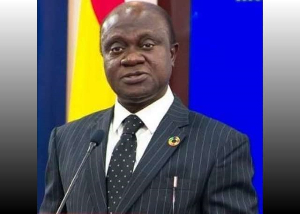The Accra Metropolitan Assembly (AMA) plans to establish special courts to prosecute those who violate its sanitation byelaws.
The Chief Executive of the AMA, Mr. Solomon Darko who made this known at a public hearing on sanitation in Accra yesterday, said poor sanitary practice is on the upsurge because enforcement of the laws are weak.
The AMA boss said the abolishment of Native Authorities Courts had contributed immensely to the current trend.
He said, "sometime ago we used to have Native Authorities Courts, which could prosecute people who violated our byelaws." He said even though there has been some remarkable improvement in filth management in the city, there is still more to be done.
He said the situation on the ground poses a great challenge to the AMA, but said his outfit is poised to resolve the issue within the next three years.
He said Accra generates 1,500-1,800 tonnes of solid waste daily which costs the AMA over ?1.2 billion monthly to collect. He said but for the subsidies provided by the Ministry of Local Government, it would have been very difficult for them to cope with the situation.
Further, the AMA spends between 1.2 and 4 billion cedis a month to pay for the collection of rubbish in the metropolis. Touching on moves to check proper sanitation, Mr Darko said the AMA has established a 140-member Task Force to respond to any emergency sanitation situation in the city and has also distributed dustbins across the city.
The Parliamentary Committee on Local Government and Rural Development, officials of Environmental Protection Agency (EPA), the Ministry of Local Government and Rural Development and the general public attended the forum.
During contributions from the public the La Mantse, Nii Kpobi Tetteh Tsuru said mechanisms should be put in to control migration into the city.
The General-Secretary of the Christian Council of Ghana, Rev. Dr. Aboagye-Mensah said AMA should provide adequate public facilities to check sanitation.
General News of Saturday, 31 August 2002
Source:
Sanitation Courts Soon
Entertainment











